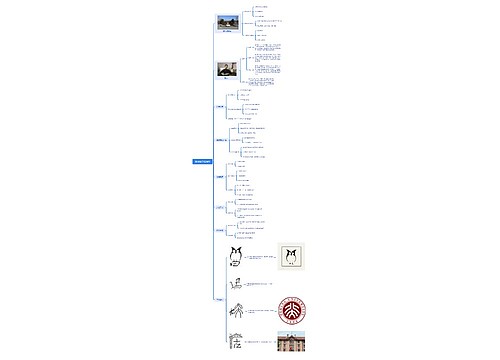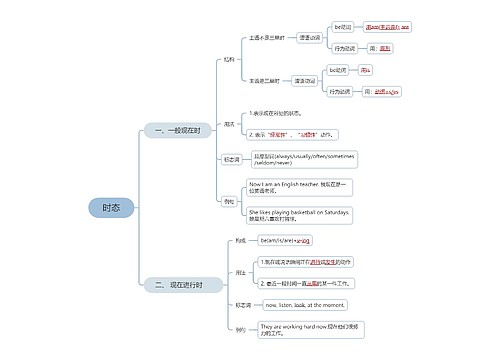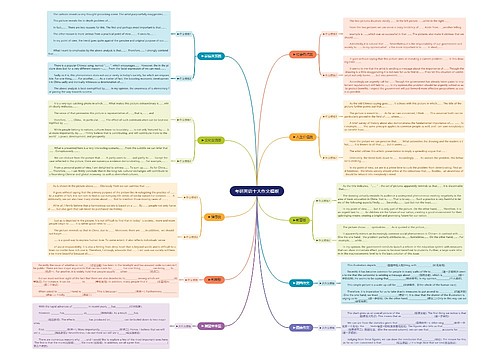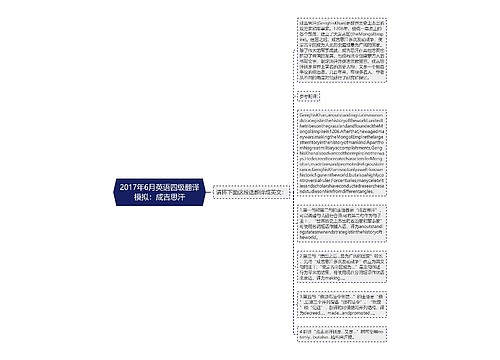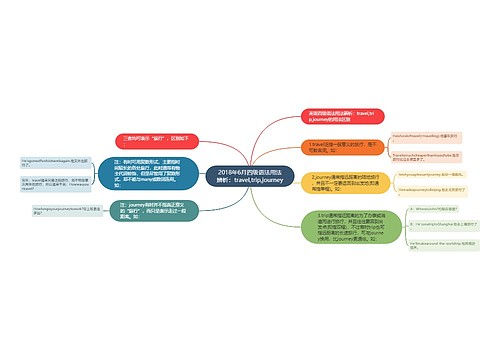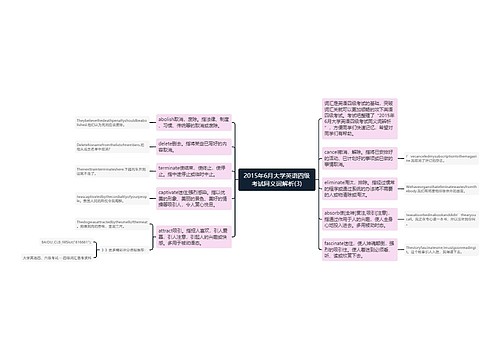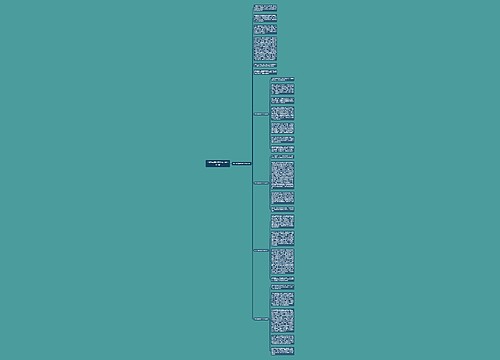距离2016年6月四级考试越来越近了,现在正是大家备考英语四级最好的时机。新东方网英语四级频道为大家整理了英语四级阅读每天一练,希望可以为大家带来帮助。
WhenonelooksbackuponthefifteenhundredyearsthatarethelifespanoftheEnglishlanguage,heshouldbeabletonoticeanumberofsignificanttruths.Thehistoryofourlanguagehasalwaysbeenahistoryofconstantchange—attimesaslow,almostimperceptiblechange,atothertimesaviolentcollisionbetweentwolanguages.Ourlanguagehasalwaysbeenalivinggrowingorganism,ithasneverbeenstatic.Anothersignificanttruththatemergesfromsuchastudyisthatlanguageatalltimeshasbeenthepossessionnotofoneclassorgroupbutofmany.『Atoneextremeithasbeenthepropertyofthecommon,ignorantfolk,whohaveuseditinthedailybusinessoftheirliving,muchastheyhaveusedtheiranimalsorthekitchenpotsandpans.』①Attheotherextremeithasbeenthetreasureofthosewhohaverespecteditasaninstrumentandasignofcivilization,andwhohavestruggledbywritingitdowntogiveitsomepermanence,order,dignity,andifpossible,alittlebeauty.
Asweconsiderourchanginglanguage,weshouldnoteheretwodevelopmentsthatareofspecialandimmediateimportancetous.OneisthatsincethetimeoftheAnglo-Saxonstherehasbeenanalmostcompletereversalofthedifferentdevicesforshowingtherelationshipofwordsinasentence.Anglo-Saxon(oldEnglish)wasalanguageofmanyinflections.ModernEnglishhasfewinflections.Wemustnowdependlargelyonwordorderandfunctionwordstoconveythemeaningsthattheolderlanguagedidbymeansofchangesintheformsofwords.Functionwords,youshouldunderstand,arewordssuchasprepositions,conjunctions,andafewothersthatareusedprimarilytoshowrelationshipsamongotherwords.Afewinflections,however,havesurvived.Andwhensomewordinflectionscomeintoconflictwithwordorder,theremaybetroublefortheusersofthelanguage,asweshallseelaterwhenweturnourattentiontosuchmatersasWHOorWHOMandMEorI.Thesecondfactwemustconsideristhataslanguageitselfchanges,ourattitudestowardlanguageformschangealso.『Theeighteenthcentury,forexample,producedfromvarioussourcesatendencytofixthelanguageintopatternsnotalwayssetinandgrew,untilatthepresenttimethereisastrongtendencytorestudyandre-evaluatelanguagepracticesintermsofthewaysinwhichpeoplespeakandwrite.』②
1.Incontrasttotheearlierlinguists,modernlinguiststendto.
A.attempttocontinuethestandardizationofthelanguage
B.evaluatelanguagepracticesintermsofcurrentspeechratherthanstandardsorproperpatterns
C.bemoreconcernedabouttheimprovementofthelanguagethanitsanalysisorhistory
D.bemoreawareoftherulesofthelanguageusage
2.Choosetheappropriatemeaningfortheword“inflection”usedinline4ofparagraph2.
A.Changesintheformsofwords.
B.Changesinsentencestructures.
C.Changesinspellingrules.
D.Wordsthathavesimilarmeanings.
3.Whichofthefollowingstatementsisnotmentionedinthepassage?
A.Itisgenerallybelievedthattheyear1500canbesetasthebeginningofthemodernEnglishlanguage.
B.SomeotherlanguageshadgreatinfluenceontheEnglishlanguageatsomestagesofitsdevelopment.
C.TheEnglishlanguagehasbeenandstillinastateofrelativelyconstantchange.
D.ManyclassesorgroupshavecontributedtothedevelopmentoftheEnglishlanguage.
4.Theauthoroftheseparagraphsisprobablya(an).
A.historianB.philosopherC.anthropologistD.linguist
5.Whichofthefollowingcanbebestusedasthetitleofthepassage?A.ThehistoryoftheEnglishlanguage.
B.OurchangingattitudetowardstheEnglishlanguage.
D.SomecharacteristicsofmodernEnglish.
2.imperceptibleadj.感觉不到的,觉察不到的,极细微的
4.possessionn.拥有,占有,领土,领地
5.ignorantadj.无知的6.folkn.人们,民族
8.Anglo-Saxonsn.盎格鲁—撒克逊语,盎格鲁—撒克逊人,地道的英国人
9.reversaln.颠倒,反向,逆转10.inflectionn.词尾变化
12.conjunctionn.联合,关联,连接词
13.intermsof根据,按照,用……的话,在……方面
①【解析】“who”引导非限制性定语从句,修饰“thecommon,ignorantfolk”。“muchas”引导状语从句。“kitchenpotsandpans”意为“锅碗瓢盆”。【译文】一方面它是那些普通人甚至无知民众的财产,他们每天都像使唤他们的牲畜和锅碗瓢盆一样用着语言。
②【解析】此句为一个复合倒装句。“until”引导一个并列句,前一句的主语是“atendency”,“tofixthelanguageintopatternsnotalwayssetinandgrew”作“tendency”的定语,第二句的主语也是“atendency”,
“to”后面的句子作“tendency”的定语,“inwhich”引导的定语从句修饰“ways”。【译文】例如在18世纪一种产生于各种来源的趋势把语言固定在一个不常使用和不利于语言发展的模式中,而到了当今,主流是要反复研究、评价人们说话、写作中的语言实践。
【短文大意】本文主要讲述英语演变过程的一些特点,指出了古英语与现代英语的不同,以及语言学家对待语言形式的态度的变化。
1.B细节题。根据题干回原文中定位,阅读文章时注意首末段及各段开头的句子,这往往都是考点所在。这篇文章讲的主要是英语语言演变的一些特点,指出了古英语与现代英语的不同,以及语言学家态度的转变。本题问的正是现代语言学家与早期语言学家不同的倾向。根据文章末尾Theeighteenthcentury,forexample,producedfromvarioussourcesatendencytofixthelanguageintopatternsnotalwayssetinandgrew,untilatthepresenttimethereisastrongtendencytorestudyandre-evaluatelanguagepracticesintermsofthewaysinwhichpeoplespeakandwrite.现代语言学家倾向于根据人们说和写的方式评价语言实践,而不是像早期的语言学家根据一定的模式评价语言。选项B符合文章的意思。
2.A词汇题。要根据上下文的信息判断单词的意思。文章在第二段中间再次提到inflection时说,Afewinflections,however,havesurvived.后面文章又举了WHO/WHOM和ME/I为例说明inflection,这是一篇关于语言学的文章,从例子可以看出inflection的意思应该是“单词的变形”,选项A正确。
3.A细节题。根据文章的内容,选项A“普遍认为1500年是现代英语的起点”在文章中没有提及,故为正确答案。文章第二句说Thehistoryofourlanguagehasalwaysbeenahistoryofconstantchange-attimesaslow,almostimperceptiblechange,atothertimesaviolentcollisionbetweentwolanguages.我们语言的历史是一个不断变化的历史——在一些时间里缓慢得几乎难以察觉,在另一些时间里则是两种语言的激烈碰撞。由此可以推断一些其他的语言对英语的发展有重大影响,选项B符合文章的意思。
4.D词汇题。此题考查考生的推测能力和词汇量,文章讲述的是英国语言演进的具体细节,最适当的答案应该是D。作者很可能是一位语言学家。A答案(历史学家)和C答案(人类学家)也可以有点迷惑性。B答案(哲学家)是最不符合的。
5.C主旨题。本文从各个方面谈及英语作为一种语言的发展变化,但并不是讲述英语的历史。所以选项A不对,选项C作为文章的题目最为贴切。选项B只是文章阐述的一个方面,不够全面。文章是在谈到英语的不断变化的时候谈到了现代英语的一些特点,所以选项D也失之于片面。



